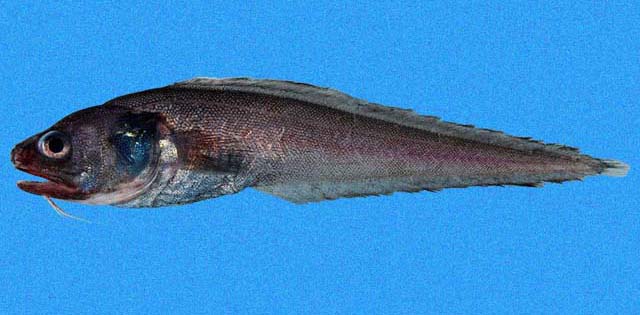| Ophidiidae (Cusk-eels), subfamily: Ophidiinae |
| 25 cm SL (male/unsexed) |
|
bathydemersal; marine; depth range 102 - 740 m |
| Eastern Pacific: Baja California to northern Chile. |
|
Dorsal spines (total): 0-0; Dorsal soft rays (total): 99-113; Anal spines: 0-0; Anal soft rays: 81-98; Vertebrae: 55-58. Rostral spine well developed with vertical basal component which projects dorsally, and a long forward projecting straight component; peritoneum and guts black; narrow weak band of basibranchial teeth; bones thin, weakly developed (Ref. 34024). Branchiostegal rays: 7 (Ref. 36413). |
| Adults are found on soft bottoms, between 429 and 732 m in depth, while juveniles are encountered at shallower depths (Ref. 9329). Prejuveniles mesopelagic (Ref. 34024). Oviparous, with planktonic larvae and extended pelagic juvenile stage (Ref. 36413). Oval pelagic eggs float in a gelatinous mass (Ref. 205). |
|
Least Concern (LC); Date assessed: 16 August 2019 Ref. (130435)
|
| harmless |
Source and more info: www.fishbase.org. For personal, classroom, and other internal use only. Not for publication.

